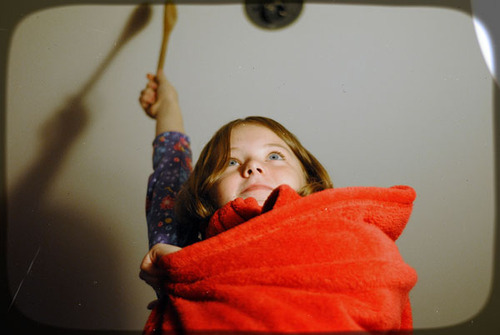I have to be a hero to help. I have to be perfect to be useful. I have to have my act together. We might not realize we believe this, or that it holds us back from offering our help, but I’m convinced that too often it is.
Last week we introduced Tate Williams and his story of working with The Global Orphan Project.
Williams described his role as being an advocate for those who do hands-on orphan care: a caregiver of caregivers. I asked why this is so needed, and his response resonated with me profoundly.
“We turn people who participate in things like orphan care into either superheroes or crazies.”

What this does, Williams said, is isolate. It creates an “us and them” mentality.
“You’re doing this really hard thing. You’re up on this pedestal; I can’t interact with you, so I’m not even going to try.”
Pedestals may be fancy, but they’re incredibly lonely. Pedestals make the people giving care believe that they have to live up to this “Hero” status. So they don’t share their needs; which in turn cuts them off from support and resources.
Lastly, pedestals isolate the rest of us as well. Williams said the “hero myth” makes the rest us who want to help in smaller ways, believe that we have nothing to offer.
“Who can be the hero? The good looking, really well thought of individual, who is killing themselves to do it.”
William’s goal is to take orphan care and move it away from the relegated few, to a community, group effort. To help churches figure out everyone can have a place, and contribute.
So, if the natural tendency is to put people on pedestals, the new goal must be to bring them to the kitchen table. Kitchens are gritty and messy. Soup spills, dogs eat, pans soak in suds. They are also the intimate heart of the family.

But how do we do this? How do we as nonprofits and individuals avoid isolation and bring people to the table?
- Value authenticity
The only way to debunk the hero myth is to let people be human, who sometimes say stupid things, and wear sweats. By valuing authenticity we teach people not to be ashamed of their weakness and to ask for what they need. - Establish an Advocate
People doing intensive care or volunteering need a go between. To avoid feeling like whiny “problem people” they need someone below executive/high-leadership level that will see their needs, and advocate for them. - Celebrate the Mechanic
I love William’s community model. This can only be done when we value the mundane as much as we value the glamorous.
“The people who care for orphans in their homes shouldn’t be more celebrated than the people who babysit, bring a meal, mow the yard, or fix the tub. Let’s celebrate that! Because the givers want to celebrate it, and the receivers really want to celebrate it.”
What I love most about kitchen tables is that someone belongs in every spot. Causes like orphan care are tables that we all belong at.
What does your seat look like?
– Anna Spady, [email protected]